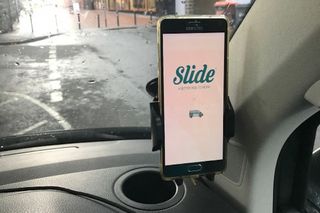How new technology and great ideas can transform your business
New technology is empowering new services and business models. What could it do for you?

Together, bright ideas and great technology can change the shape of business empowering fledgling startups to develop new, disruptive business models or pushing existing small businesses to transform the way they work. In the past few years, we've seen mobile technologies revolutionise every industry from transport to finance to property, and that's only going to accelerate as artificial intelligence, virtual reality and the Internet of Things shake things up. These technologies will enable companies to better understand and predict what their customers need, then use that information to create more powerful, often more personal, products and experiences.
Virtual reality, for instance, isn't just about entertainment and gaming, but also sales, industrial design, medicine and training. It can give travel-shop customers a virtual taste of a destination before they book their holiday or allow architects to give their clients a virtual tour of buildings that don't yet exist. AI could provide the tools with which small companies automate tasks, doing more with fewer resources to compete with larger players. It could help them deliver targeted expertise and services to a wider audience. Perhaps that's why the number of AI companies founded in the UK has doubled in the past 12 months, with a new company founded almost weekly.
It's with mobile technology, however, that the effects are already being felt. We've reached the point where you can run a business from your smartphone. Apps such as Slack, Trello, Skype for Business, Quip and Podio keep teams in touch and working together, and they're just as effective if not more so on the smartphone in your pocket. CRM and BI apps bring all the crucial information that businesses need to their smartphone screens. It's only when you get to high-end business applications, accounts and document creation that you need your laptop (and even here, thanks to Samsung's DeX desktop experience technology, your Galaxy S8 can take you most of the way there).
Yet the real impact of this technology doesn't lie in features or their immediate applications, but in the way new technology can fuel new ideas. We're not just talking about ways to optimise business processes or improve the customer experience, but ideas that can redefine a whole product or service category, turning the established way of doing things upside down. Sometimes, just bringing in a smartphone can help you find a smarter way.
A shared commuting system booked using a smartphone app, it was launched by RATP Dev in July 2016 and is in the company's words "giving Bristol a better ride to work". Customers can use their smartphones to book their trip to or from work at a preferred pickup time from their nearest pickup point, giving them comfortable, hassle-free travel with real-time updates and affordable fixed-rate fares.
Yet the really interesting stuff is what's happening on the driver's side. Slide Bristol's drivers use their Samsung Galaxy smartphones to take bookings and locate customers, through an app that ties in with back-end software developed by the French company Padam. This takes the continuously updated location and pickup data from the drivers, then uses it to optimise routes in real-time across the fleet. Drivers get the information they need as they need it, while Slide Bristol's algorithms get the data they need to give customers a smooth start (or end) to their working day. The result? Both customers and drivers can enjoy more great days at work.
This is the kind of service and business model that would have been inconceivable before the smartphone. Now it's not just conceivable but almost inevitable. Could the same be true of your next great business idea?
Get the ITPro. daily newsletter
Receive our latest news, industry updates, featured resources and more. Sign up today to receive our FREE report on AI cyber crime & security - newly updated for 2024.
Discover more about how Samsung can help create more good days for small businesses.
Stuart has been writing about technology for over 25 years, focusing on PC hardware, enterprise technology, education tech, cloud services and video games. Along the way he’s worked extensively with Windows, MacOS, Linux, Android and Chrome OS devices, and tested everything from laptops to laser printers, graphics cards to gaming headsets.
He’s then written about all this stuff – and more – for outlets, including PC Pro, IT Pro, Expert Reviews and The Sunday Times. He’s also written and edited books on Windows, video games and Scratch programming for younger coders. When he’s not fiddling with tech or playing games, you’ll find him working in the garden, walking, reading or watching films.
You can follow Stuart on Twitter at @SATAndrews.





